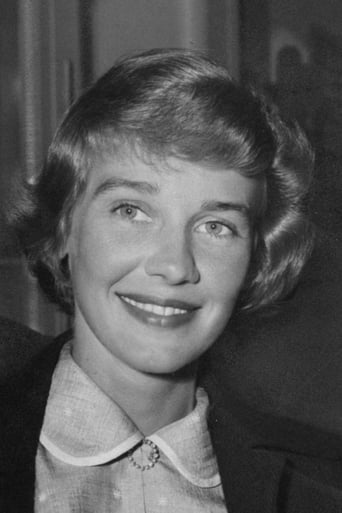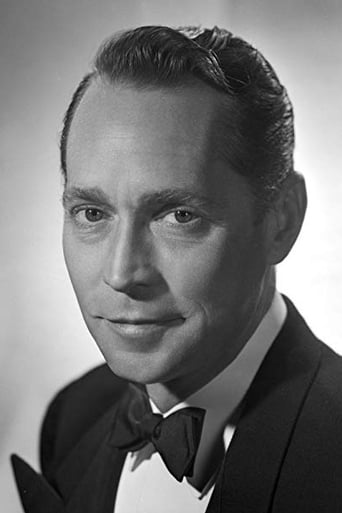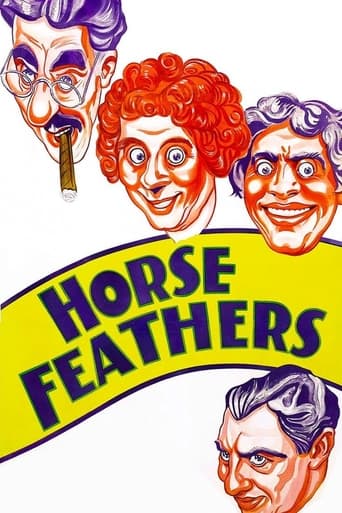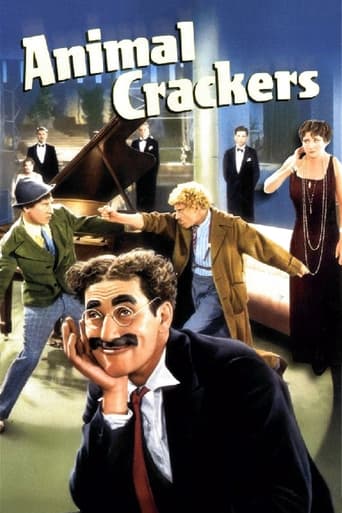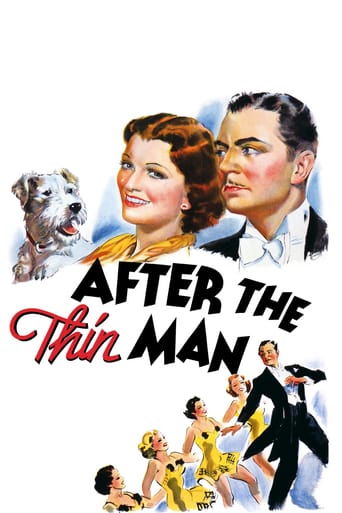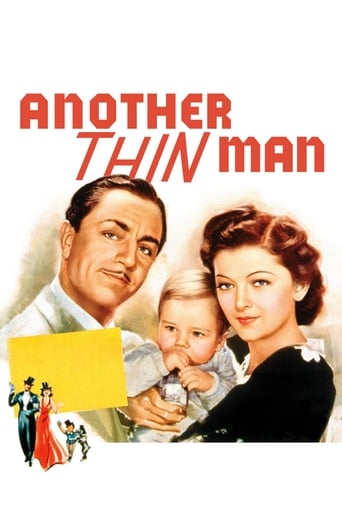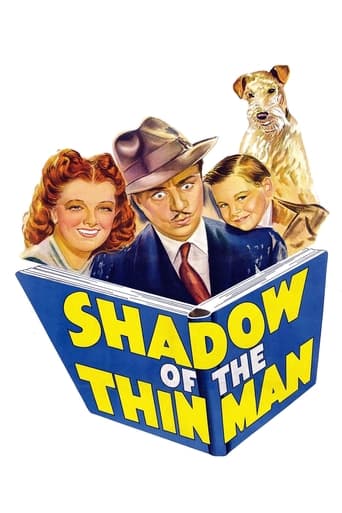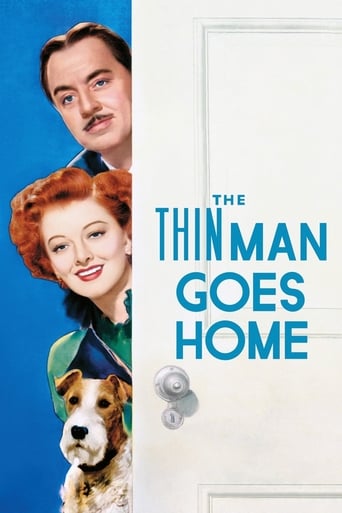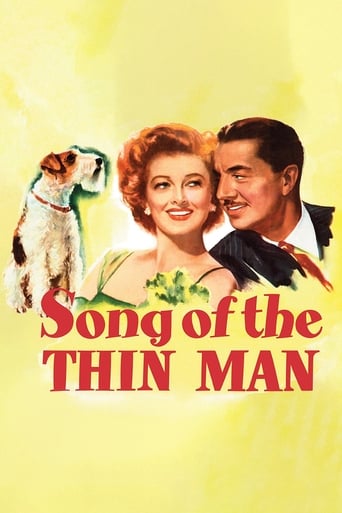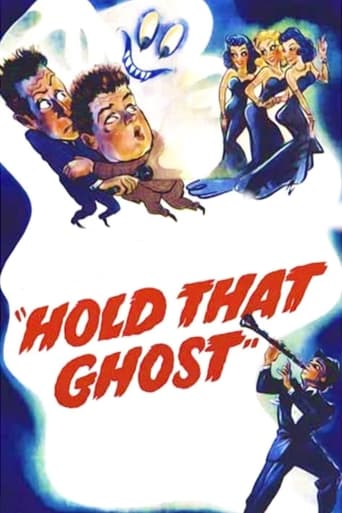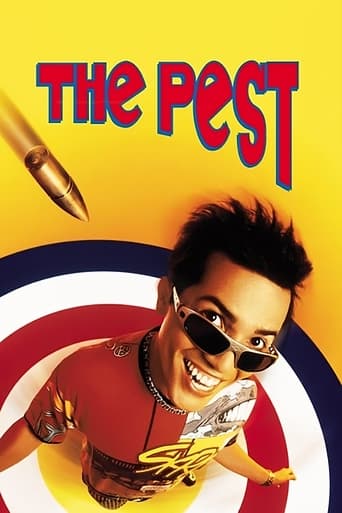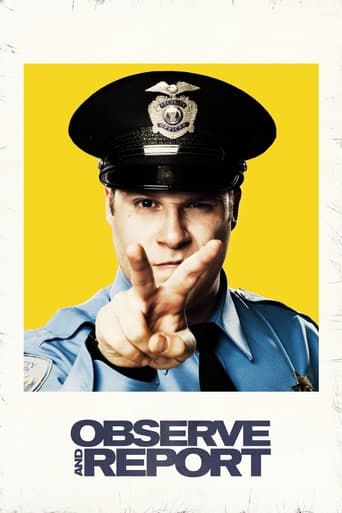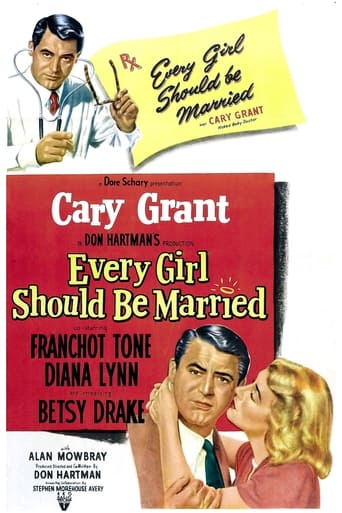
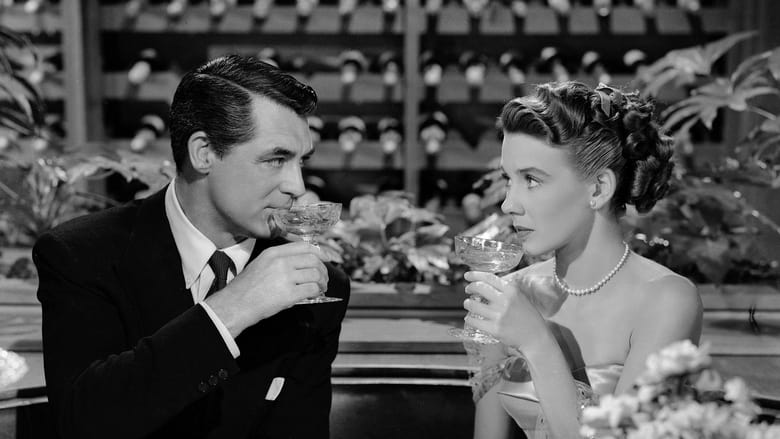
Every Girl Should Be Married (1948)
Anabel Sims is determined to find the perfect husband. She thinks she's found her man in Madison Brown, a handsome pediatrician. She then prepares an elaborate scheme to trap him into marriage
Watch Trailer
Cast
Similar titles
Reviews
Fanciful, disturbing, and wildly original, it announces the arrival of a fresh, bold voice in American cinema.
At first rather annoying in its heavy emphasis on reenactments, this movie ultimately proves fascinating, simply because the complicated, highly dramatic tale it tells still almost defies belief.
Blistering performances.
It is an exhilarating, distressing, funny and profound film, with one of the more memorable film scores in years,
Like fingernails scratching down a blackboard, Betsy Drake's annoying voice dominates this dreary offering from RKO. While nominally a Cary Grant film, Grant transparently takes second place behind the true star of the film, Betsy Drake. And what a painfully miserable choice she was. She is unable to open her mouth without engaging in a sanctimonious lecture about marriage and her plans to trap Grant, and barely two minutes ever go by in the film without her doing so. She is as unappealing an actress as has ever been my misfortune to waste time watching. Her endless speeches are unbearable, and I, who am able to suspend disbelief at the most outrageous plots, will go to my grave not accepting for a second that Cary Grant could ever have an interest at all in the most self-righteous and unattractive Betsy Drake.If only Grant had been given more to do in this film.But if you do choose to watch "Every Girl Should Be Married", there are a few interesting moments worth looking out for. The best comes when Cary Grant, going off on one of his diatribes against marriage in general and Betsy Drake in particular, actually does a very funny impersonation of Drake, complete with high pitched voice and female mannerisms. A quite enjoyable moment in what otherwise must have been a most boring assignment for Grant.One other interesting moment occurs when Grant is sitting beside Drake in her home, and the telephone rings for a second time. The receiver is apparently placed backwards on the telephone base, so that when Drake reaches for it, she ends up picking up the receiver sort of inside-out, and it is rather awkward; however, her improvisation goes smoothly enough, and was obviously kept in the film.Now you all remember the great telephone scene in "It's a Wonderful Life"; Jimmy Stewart and Donna Reed are sharing the receiver as they speak to their old friend Sam. Because they have yet to openly declare their love for each other, the tension inherent in their being in such close proximity to each other is spectacular. Well, here in "Every Girl Should Be Married", there is a similar moment in the same scene as described above; as Drake and Grant are sitting next to each other, they pass the telephone receiver back and forth as it rings, and casually brush and touch each other's arms as they share a look at a baby magazine; here was some potential for some interesting tension. Unfortunately, like the entire rest of the movie, the potential is not even remotely realized. Just another small failure, though this is just a cog on a giant wheel of failure.Even the endless appearance of the great old song "Sailing" (recorded most memorably by Bobby Darin) becomes grating after a while.On the other hand, quite pleasing is the surprising un-credited appearance of genial Eddie Albert in the long closing scene. A great job by Albert, but sadly too little too late.Is this film awful? Maybe not awful, but at best, unbearable.
Every Girl Should Be Married is directed by Don Hartman who also co-writes with Stephen Morehouse Avery and Eleanor Harris. It stars Cary Grant, Betsy Drake, Franchot Tone and Diana Lynn. Music is by Leigh Harline and photography by George E. Diskant.Betsy Drake (in her screen debut) plays Anabel Sims, a department-store clerk who goes after paediatrician Dr. Madison W. Brown (Grant), determined to snag him as her husband.Women have found it necessary to use subterfuge and their own feminine devices for centuries.Fun, frothy and a little daring, Every Girl Should Be Married is of its time but none the worse for it. It's a different spin on the battle of the sexes format with Betsy Drake's determined femme proving to be the aggressor in the pursuit of happiness. There would have been some feminists cringing at the notion of one of their number seemingly courting marriage as a reason for being, but digging further into the character reveals a strong lady who knows what she wants and sets about getting it. As the character stands up and says during a marvellous sequence at a lecture given by Grant's eminent doctor, who wrote the rule that only men can ask a girl out? To be the one doing the pursuing? It's relevant stuff and via its comedy zeal puts the sexes on an even playing field. And you know what? As a red blooded male I found this in itself to be very sexy! Drake only had a short career, she would marry Grant soon after this film had been a hit at the Christmas 1948 box office. It's a shame we never got more from her because she owns this film. Managing to shift easily from girlish charm to strong willed woman when the narrative demands, she offers up a counterpoint to the foggy memory of the "Suzy Homemakers" so rife in 50s and 60s American romantic comedies . Drake brings originality to the role, while simultaneously providing great comedy opposite the ever coy Grant. She also has a smile that could melt the coldest of hearts. Grant, Tone and Lynn are playing second fiddle, but that's not to the film's detriment, and with Hartman unfussy in his direction it rounds the film out as a winner. It does pick some ideas from the pockets of previous screw balls, but with its centre fresh and interesting it would be churlish to criticise some outer edge formula steals. 7.5/10
This is one of those comedy of manners movies at which Carry Grant and his bumbling good nature excelled. It's predicated upon the stuffy good manners expected of men, and the emotionally impulsive behaviour idealised amongst women. These movies were the making of Grant.Men were men, and doomed to be breadwinners. Women were doomed to marriage, hou8se-keeping, and families. You can easily see why intelligent and ambitious sisters railed against this wedlock deadlock, though for the middle-classes and above, married life could be one of pretty comfortable domesticity. Men, too, might have rebelled, but were groomed always to endure the 'emotional' excesses and complaints of women, whilst stoically never complaining themselves, even when selectively packed-off to war.Other things, too. There's a not-so-clear line to cross between pursuit by courtship and stalking, and this movie unquestionably crosses that line. It has a happy ending because Grant's character is finally smitten, and in any case is canny enough to know what's going on. Even so, if he'd been disinclined to accede to the relentless stalking of his besotted, the outcome in a non-comedic work might have been a lot less funny. Bunnies could get boiled.Viewed in light of its vintage, it has a certain talky, predictable charm. But we live in the 3rd millennium, where stalking is now a recognised crime, with often life-changing consequences for both victim & victimiser. In this regard it is like watching a vintage movie depicting the hilarious consequences of racism, in an age when a black Labrador dog (in the 'Dam Busters') must now be called 'Nipper' rather than its genuine original name. There are times when this movie makes slightly uncomfortable viewing. Big-mouth Babs continued this tiresome cliché into the 1970's with her decidedly unfunny 'What's Up, Doc'. It was perhaps Cint Eastwood who finally nailed the idea with his similarly-vintaged shocker 'Play Misty For Me'. I suspect that, now, if the gender roles were reversed, and that it was the male engaged in the stalking, feminist pressure would see this work quietly buried. Though it makes an interesting historical comment even so.
Cary Grant, of course, is always worth watching (Father Goose notwithstanding). Betsy Drake has a great cadence to support her slightly ditsy intonation, and I did not tire of it, as some have said, any more than I do the affectations of July Holiday or Marilyn Monroe.The plot is not trivial, nor is it totally predictable.Where this film fails in comparison to others of its era and genre is in the writing. The comedy is amusing enough, and there are some good moments, but the lines do not propel the viewer with the rapid-fire bite that is expected with a setup like this one. I wanted it to be good enough for a 7, but I will stick with my 6 which in my metrics is still "definitely worth watching".To those PC reviewers who were "disturbed" by the "stalker" aspect, I say: loosen up, it is a COMEDY! We have all laughed at Lucy being sillier, more extreme and more persistent. Beside, the movie starts by laying out the very sensible premise that a woman should be able to pursue an attractive man in ways similar to a man going after a desirable woman. eg., Rough paraphrase of girl talk: "What would you do on a date?" "Take him on a drive in the country.""And run out of gas?" "If I wanted to".. . . and everything follows from that premise -- logical, consistent and, for me, engaging.Lastly, I note that the best user ratings, as of this date, are by women of the age of Betsy Drake's character, and not by nostalgic curmudgeons like me.

